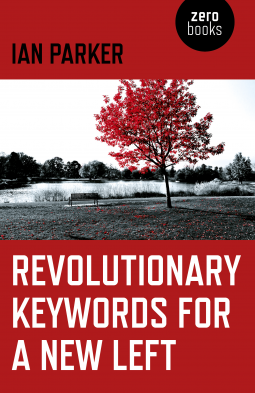
Revolutionary Keywords for a New Left
by Ian Parker
This title was previously available on NetGalley and is now archived.
Send NetGalley books directly to your Kindle or Kindle app
1
To read on a Kindle or Kindle app, please add kindle@netgalley.com as an approved email address to receive files in your Amazon account. Click here for step-by-step instructions.
2
Also find your Kindle email address within your Amazon account, and enter it here.
Pub Date 8 Dec 2017 | Archive Date 8 Dec 2017
John Hunt Publishing Ltd | Zero Books
Description
Revolutionary Keywords for a New Left comprises short essays on fifty revolutionary keywords, each word being put to work on a contemporary political issue. With keywords ranging from academicisation to neoliberalism, from postcolonial to Zionism and with subjects including, Badiou, North Korea, sexual violence and Žižek, the book concludes with an essay mapping the development of progressive keywords before our century of revolution, which began in 1917, keywords that emerged in the fifty years of struggle between 1917 and 1967, and revolutionary keywords for the new left today.
Advance Praise
Ian Parker’s Revolutionary Keywords is an innovative and rigorous analytic for the contemporary left whose passionate discourses sometimes lose the theoretical clarity that distinguishes Marx’s own writings. Revolutionary Keywords takes philosophical risks by unlayering the conceptual densities of such complex concepts as antagonism, normalcy, precarity, and accelerationism. In laying bare each concept, Parker provides the philosophico-historical lines of its formation and situates it within its broad social conditions. The book is a pioneering convergence of activist writings and philosophical inquiry.
Teresa Ebert, Author of The Task of Cultural Critique
Marketing Plan
Provides a clear account of new keywords used in the new left political movements, providing information on the historical development of these terms, as well as testing them in practice in relation to political events.
Available Editions
| EDITION | Paperback |
| ISBN | 9781785356421 |
| PRICE | £17.99 (GBP) |
Links
Featured Reviews
 Joseph S, Reviewer
Joseph S, Reviewer
Revolutionary Keywords for a New Left by Ian Parker is a collection of essays on keywords for the political left. Parker is Co-Director (with Erica Burman) of the Discourse Unit, Managing Editor of Annual Review of Critical Psychology, Secretary of Manchester Psychoanalytic Matrix, member of the Asylum Magazine editorial collective, and supporter of the Fourth International. He is a researcher, supervisor, and consultant in critical psychology and psychoanalysis.
Revolutionary Keywords is a series of essays based on keywords. It is not a dictionary of definitions but contains commonly used keywords and creates essays built around the word. The essays put the keyword into context in modern socialism. Like most books on socialism, this one, too, becomes complex. The term socialism means many different things to many different people. European socialism, Stalinism, Leninism, Marxism, Democratic Socialism, even America's capitalist based "socialism" is discussed in order to set the common ground.
The book discusses many aspects of historical socialism as well as modern day. Topics of race, sex, gender, globalism, and campism are discussed in detail throughout the book. Other topics seem mundane but have deep roots such as discourse, postmodernism, identity, and animals. The discussions run deep and turn out complex. At the end, the recap traces the changes in keywords from 1917 -1967 and 1967-2017. The evolution of keywords leads to the 2017 keywords in this volume. Although not intended for the general audience, in fact, I found myself a bit entangled in the subject matter. I felt much the same way on the first day of a semester in graduate school. Needless to say, it is not light reading, but worth the time and effort for those with an interest in the far left.



